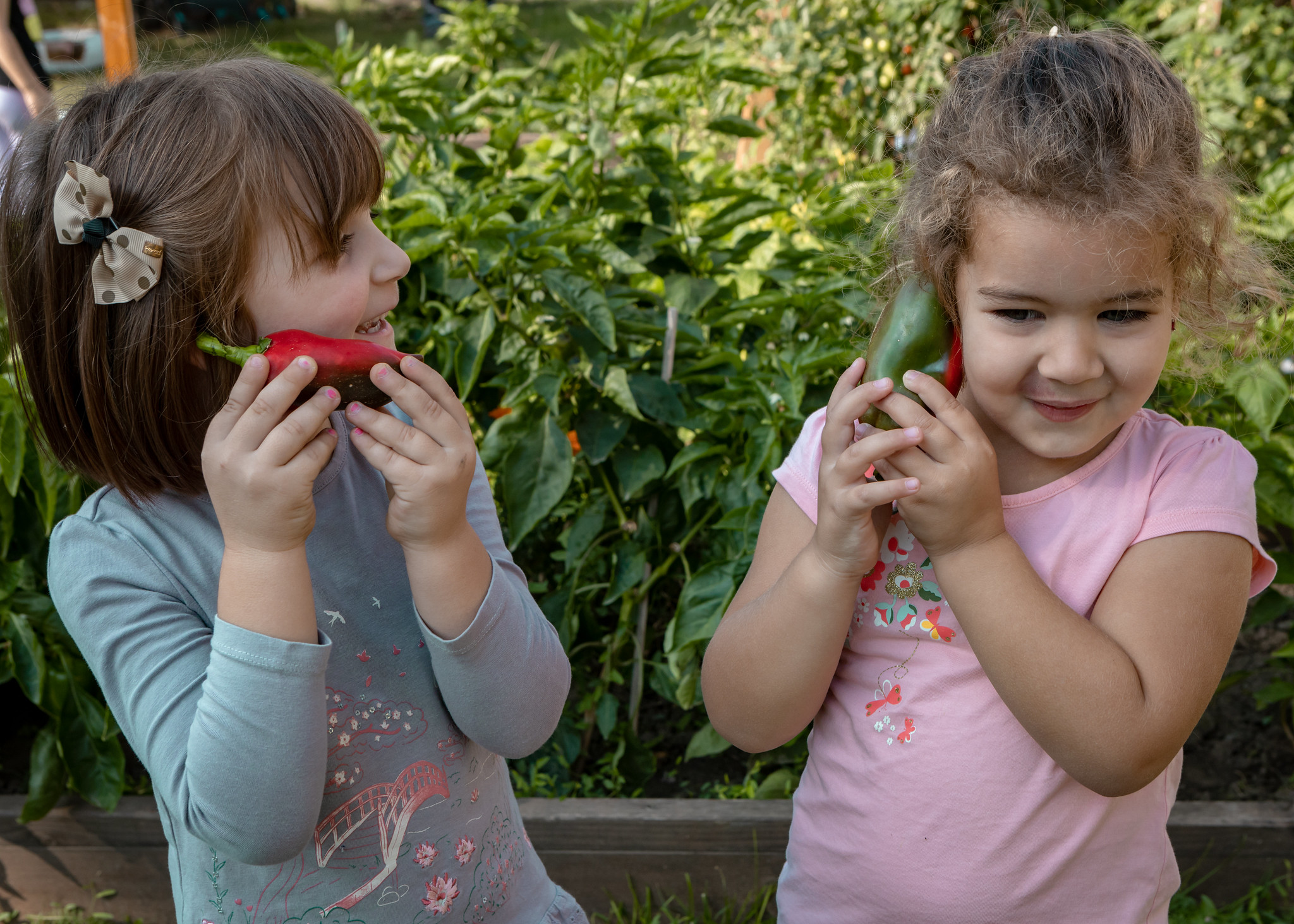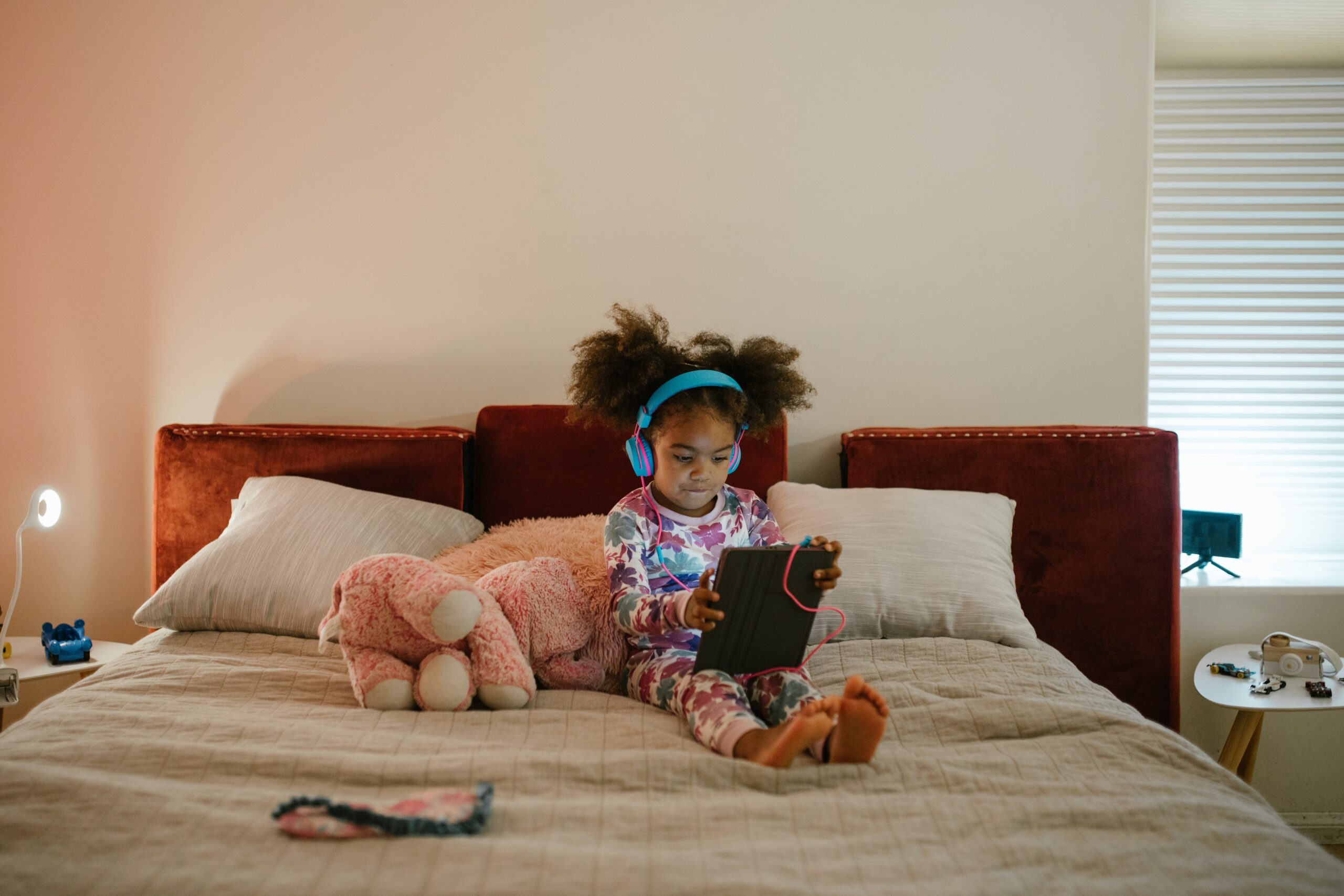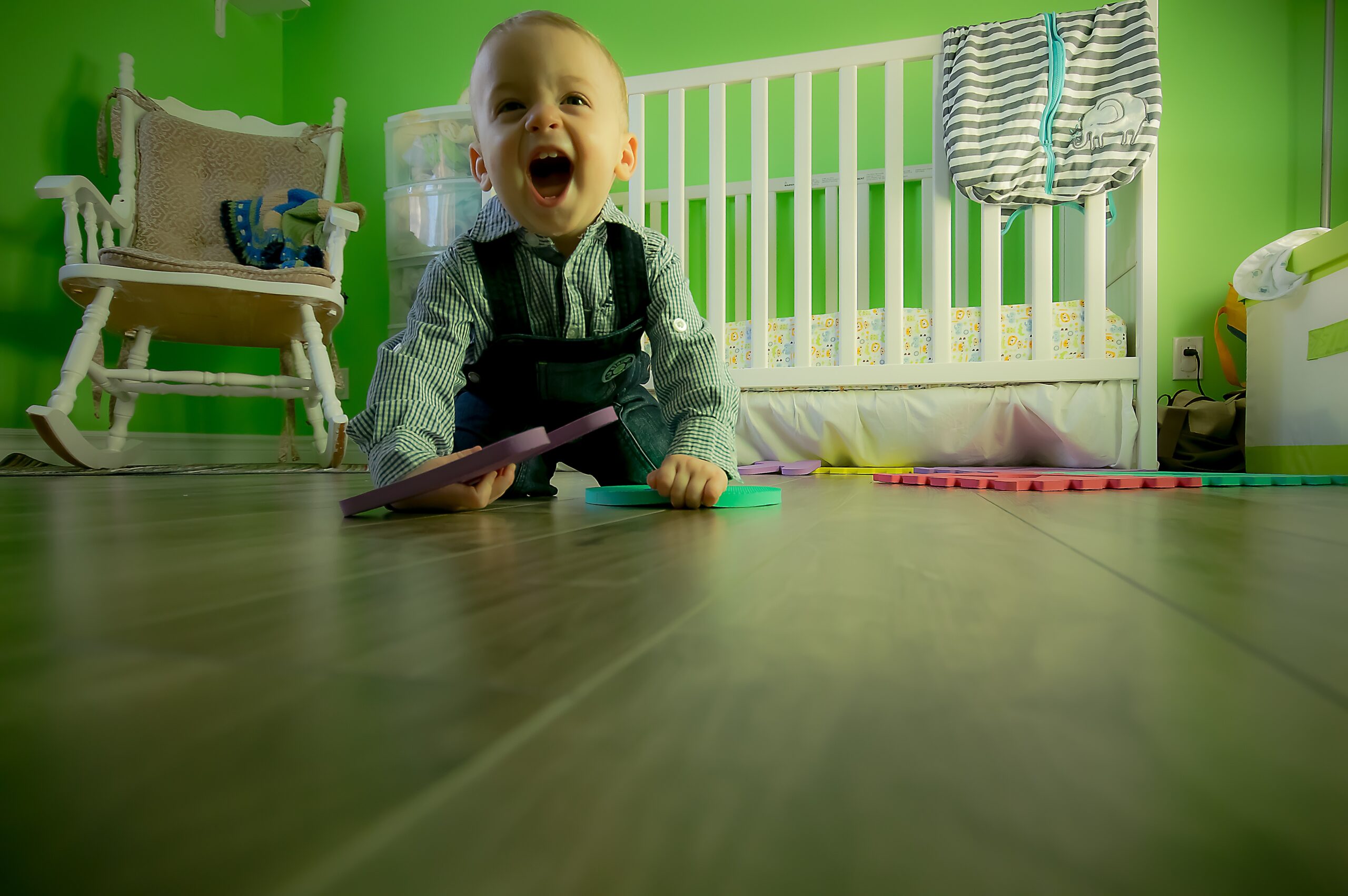We all know how bad it is to spend time in front of a screen, but we also forget that easily when we are bored or when it seems like the only way to calm our children down when they refuse toys, food, or naps. This article will make a case for why it is better to exchange listening to music or watching cartoons with some other activity, and list which activities are useful.
Why should children be familiarized with technology as late as possible?
Even though the use of the term “digital literacy” is widespread today and it is impossible not to use at least some of the smart devices, psychologists and neuroscientists recommend that children in early development stages spend as little time as possible using these devices. The reasoning behind this is that numerous studies have shown that screenism, which is the term psychotherapists use to denote the negative influence of screens on the brain, impacts children’s emotional development, communication, speech development, as well as attention span.
Pediatrician and researcher, Jenny Radesky, emphasizes that too much screen time impacts the development of social skills, empathy, and problem-solving skills because these skills are achieved through exploration, playing, as well as interaction with friends. Many psychologists point out that it is detrimental to calm children down by giving them smartphones because in this way they cannot learn to self-regulate.
French neuroscientist, Michel Desmurget warns of the effects of technology in early developmental stages and claims that it is very important for children to spend time with their families for the development of language and emotional intelligence. Children growing up with technology dedicate less time to other activities, like homework, listening to music, and reading. It also worsens the quality of their sleep, causes an excess of attention stimulation, and all of that combined leads to difficulties with concentrating and makes the brain unable to achieve its full potential.

Devices with screens impact the development of speech, social skills, empathy, and problem-solving skills.
How to get your children to forget about smart devices?
While you may think that there is nothing superior to smart devices and the entertainment they provide, fortunately, that is not the case. Professor of psychology at Cornell University, Dr. Tomas Gilovič, once asked his children what are the happiest moments they remember. They did not mention toys and material things, but memories and moments they spent with their families. On this occasion, he proved that moments are more important for children than things.
Children remember and appreciate the moments they spend with family and friends, playing, walking and laughing, more than the moments spent with mobile phones, tablets and television.

For the proper development of a child’s brain, it is necessary for children to spend time in nature.
Going to the park, taking a walk, going on a field trip, and time spent in nature is priceless and irreplaceable. This is pointed out by Dr. Ranko Rajović, founder of MENSA Yugoslavia (today, Serbia) and author of the NTC program. He claims that the brain develops through movement and it is necessary for children to spend time in nature playing, just like we did when we were children. Classic games such as jumping, rotation, playing with marbles, and jump rope contribute to the development of synapses. He advises that the time that children spend on smart devices should be limited. According to him, children up to the age of seven should spend an hour, at most two watching television and thirty minutes to an hour on a computer.
In order for that time to be justified, it is necessary for them to spend twice as much time in nature. After a series of various activities and a full day, children will have a better appetite, and you will have any trouble putting them to sleep.
What if we cannot go to the park?
Given that there are periods when children cannot play in nature, there is a way to entertain children at home. With these activities, you will take children’s eyes off electronic devices, they will be thrilled because other family members are playing with them, and you will briefly return to your childhood.
One of the games of the NTC program that you can play at home is the “magic line”. All it takes is to stick the adhesive tape in the hallway and walk on it, putting your foot in front of your other foot. You will tell the child that it is difficult and that it is not for him, and in that way, you will stimulate them to try. When they succeed, they will be overjoyed to have done something that only adults can do! After this, you can go to the next level and walk backward. When the child succeeds, mark the tape with colored markers, and when you reach a certain color, do a squat, jump, turn. The child will succeed in all that and repeat it several times during the day.
The next game in which all family members can participate is the “wise ball”. It is necessary to determine the leader of the game who will touch the three parts of the body with the ball and say their name. After that, the leader will throw the ball to one of the players whose task is to repeat the same three parts of the body and touch them with the ball. Then the player returns the ball to the leader of the game and so on until all participants are replaced. After that, each player devises three body parts, taking care that no one has mentioned them before.
In addition to these games, there are other activities that may interest your little ones, including coloring books using wooden pencils or markers, playdoh, assembling cubes, stamps, tempera and watercolors, and many others.
In addition to games, what makes children happy is when adults include them in their activities. Invite the children to help you prepare meals, set the table, and clean up after meals. That way, you will occupy them, and they will be glad to be able to help you.
If your child gets bored of toys quickly, Dr. Gilovič proposes a toy rotation method. He says that children with fewer toys play more than those who have a lot of them. When children have fewer toys at their disposal, they discover new ways of playing, which deepens the playing experience itself, and encourages creativity. Decide which toys will be set aside, and which you will leave to the child to play with. After a while, once you notice the child is bored with those toys, just rotate them.
Children forget old toys once new and more advanced ones appear, the mobile phone simply stops functioning when the new version appears. However, what children will not forget nor want to replace is””memories. Time spent with family and friends is more valuable than any toy. They may not realize this now, but luckily, they have you who already know that. Just like before, do the best for your child and they will be grateful to you in the future, and you will be happy and proud!
About the author: Danka Lekić is a professional communicator. She likes to upgrade the knowledge acquired during her studies, especially in the field of digital marketing, public relations, and SEO. She also loves working with people and gaining skills and experience through practical work.


















